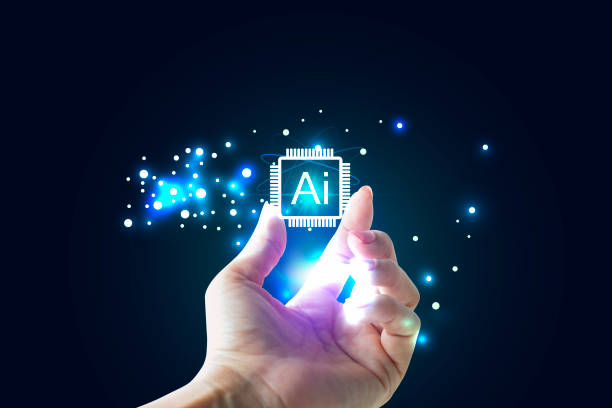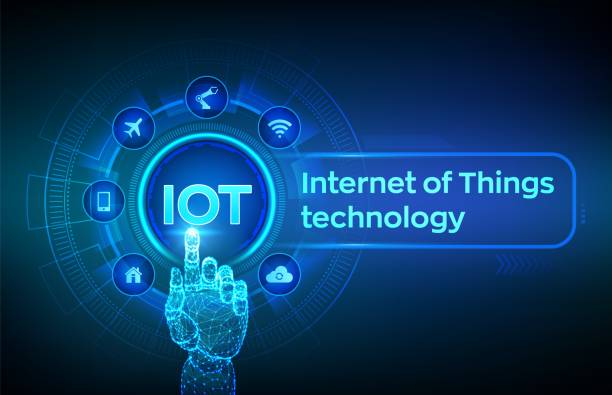What is Artificial Intelligence and How is it Revolutionizing the World of Work?
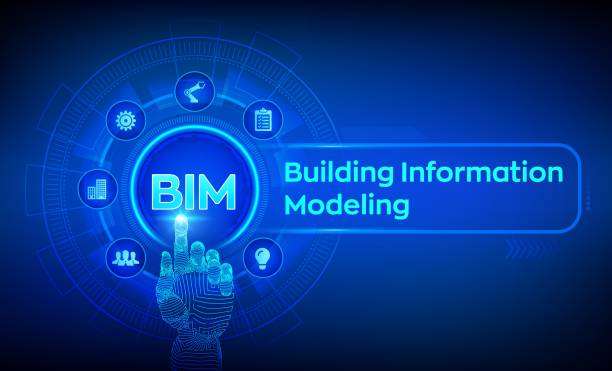
What is Artificial Intelligence and How is it Revolutionizing the World of Work?
#Artificial_Intelligence (AI) refers to a branch of computer science that aims to build machines capable of performing tasks that typically require human intelligence.
These tasks include learning, reasoning, problem-solving, natural language understanding, and machine vision.
AI is rapidly advancing and profoundly impacting various industries, including healthcare, automotive, finance, manufacturing, and services.
These developments are changing the nature of existing jobs and creating new employment opportunities.
In fact, Artificial Intelligence plays a crucial role in shaping the future of work.
In the world of work, AI operates in two main ways: displacement and augmentation.
In some cases, AI machines and algorithms can fully perform repetitive and routine tasks, leading to a reduced need for human labor in those areas.
However, in many other cases, AI acts as a tool to augment human capabilities, helping individuals perform their work faster, more accurately, and more efficiently.
For example, a doctor can use AI to analyze medical images and diagnose diseases, or an engineer can use it to design new products.
The impact of the future of AI careers varies across different industries.
Some industries, like manufacturing and transportation, may see widespread replacement of human labor with machines, while others, such as healthcare and education, may primarily experience the augmentation of human capabilities through AI.
In any case, it is important for individuals and organizations to prepare for these changes and acquire the necessary skills to work alongside AI.
Falling behind in competition with large online stores?
RasawWeb, with its professional e-commerce website design, brings your business online and increases your market share!
✅ Boost brand credibility and customer trust
✅ Easy shopping experience leads to more sales
⚡ Act now to get a free website design consultation!
What are the New Job Opportunities Arising from Artificial Intelligence?
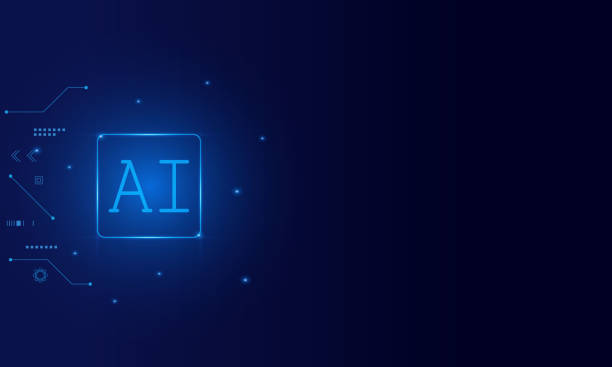
What are the New Job Opportunities Arising from Artificial Intelligence?
The development and expansion of Artificial Intelligence have led to the creation of new and diverse job opportunities.
These opportunities exist in various fields, including engineering, data science, marketing, and customer services.
Some of the most important job opportunities related to the future of AI careers include:
- AI and Machine Learning Engineering These specialists are responsible for designing, developing, and implementing AI and machine learning systems.
- Data Scientist Data scientists collect, analyze, and interpret data to identify patterns and trends that can be used to improve decision-making and solve business problems.
- Data Analyst Data analysts are responsible for extracting valuable information from data and providing reports and analyses that help managers and decision-makers make more informed choices.
- Robotics Specialist Robotics specialists design, build, test, and maintain robots.
- Process Automation Specialist These specialists are responsible for identifying and automating business processes to increase efficiency and productivity.
- AI Consultant AI consultants help organizations develop their AI strategies and use this technology to solve their business problems.
These are just a few examples of the new job opportunities that are emerging.
With the continuous advancement of AI, it is expected that even more new job opportunities will be created.
To succeed in these fields, technical and specialized skills in areas such as programming, statistics, mathematics, and machine learning are essential.
Additionally, soft skills like critical thinking, problem-solving, communication, and teamwork are also important.
Understanding the future of AI careers and preparing for the changes it brings is key to success in the future world of work.
Skills Required for Success in the Age of Artificial Intelligence
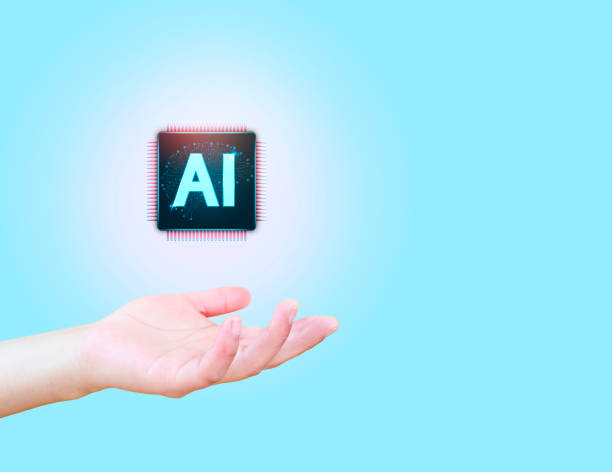
Skills Required for Success in the Age of Artificial Intelligence
With the increasing expansion of Artificial Intelligence, the skills required for success in the world of work are also changing.
In addition to technical and specialized skills, soft skills and the ability to adapt and engage in continuous learning are becoming more important.
To succeed in the future of AI careers, acquiring the following skills is essential:
- Technical Skills include programming, statistics, mathematics, machine learning, data science, and artificial intelligence.
- Soft Skills include critical thinking, problem-solving, communication, teamwork, creativity, innovation, and adaptability.
- Ability to Learn Continuously Given the rapid pace of technological advancement, the ability to learn continuously and stay updated with the latest achievements and technologies is very important.
- Understanding AI Ethics Given the widespread impact of AI on society, understanding the ethical issues related to this technology and being responsible for its use is essential.
Developing these skills not only helps individuals succeed in AI-related jobs but also prepares them to adapt to broader changes occurring in the world of work.
Continuous education and learning are key to remaining competitive in the job market and leveraging the opportunities in the future of AI careers.
| Skill | Importance |
|---|---|
| Python Programming | Very High |
| Machine Learning | Very High |
| Critical Thinking | High |
| Problem Solving | High |
The table above shows an example of important skills and their level of importance in the future of AI careers.
Remember that this table is just an example, and other skills may be required depending on the desired job and industry.
Industries Most Affected by Artificial Intelligence
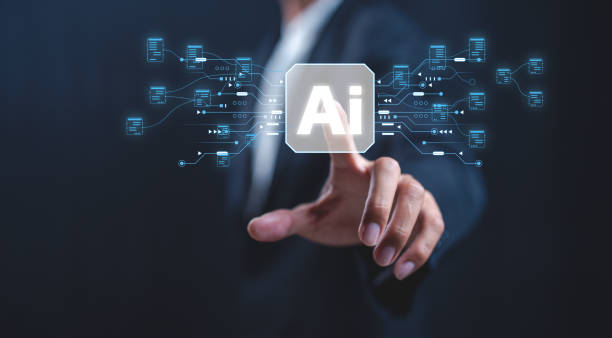
Industries Most Affected by Artificial Intelligence
Artificial Intelligence is transforming various industries, but some industries are experiencing more profound impacts.
These industries include:
- Healthcare AI plays a significant role in disease diagnosis, drug development, personalized care provision, and improving hospital efficiency.
- Automotive AI is used in the development of self-driving cars, advanced driver-assistance systems (ADAS), and improving automotive manufacturing processes.
- Finance AI is involved in fraud detection, risk management, personalized financial service provision, and automation of financial processes.
- Manufacturing AI is used for optimizing production processes, quality control, predicting equipment failures, and supply chain management.
- Retail AI plays a role in providing personalized shopping experiences, inventory management, demand forecasting, and improving customer services.
In these industries, the future of AI careers is rapidly changing, and new jobs are emerging.
Companies in these industries are looking for specialists who can use AI to solve their business problems and create added value.
The future of employment in each of these industries will be significantly influenced by automation and the use of AI algorithms.
For example, in the manufacturing industry, robots and automated systems can perform many repetitive tasks, while in the financial industry, AI algorithms can help identify complex patterns and predict market trends.
These changes require employees in these industries to acquire new skills and adapt to new technologies.
Did you know that customers’ first impression of your company is your website? With a powerful corporate website from RasawWeb, multiply your business’s credibility!
✅ Custom and eye-catching design tailored to your brand
✅ Improved user experience and increased customer attraction
⚡ Get a free consultation!
Challenges Facing the Workforce in the Age of Artificial Intelligence
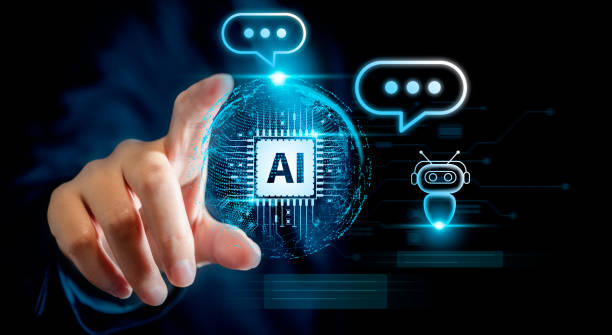
Challenges Facing the Workforce in the Age of Artificial Intelligence
The expansion of Artificial Intelligence also creates challenges for the workforce.
Some of the most important of these challenges include:
- Job Displacement Automation and AI can lead to job losses in some industries.
- Need for New Skills To compete in the future job market, individuals must acquire new skills that are compatible with AI.
- Income Inequality The gap between individuals with the necessary skills to work in the age of AI and those without these skills may widen.
- Ethical Issues The use of AI can create new ethical issues, such as algorithmic bias and data privacy.
To address these challenges, governments, organizations, and individuals must take action.
Governments can adopt policies to support continuous education and learning, create new job opportunities, and reduce income inequality.
Organizations can offer programs to train their employees and help them acquire new skills.
Individuals must also be responsible and actively seek to learn and develop their skills.
Managing the future of AI careers requires careful planning and readiness to face challenges.
Specifically, education plays a vital role in preparing the workforce for the future of AI careers.
Educational systems must be designed to equip students with the technical and soft skills needed to work alongside AI.
This includes teaching programming, statistics, critical thinking, and problem-solving.
Furthermore, education on ethics and responsibility in the use of AI is also very important.
The Role of Education in Preparing the Workforce for the Age of Artificial Intelligence

The Role of Education in Preparing the Workforce for the Age of Artificial Intelligence
Educational systems must seriously address how to prepare students for the future of AI careers.
This includes the following:
- Integrating AI Education into Curricula Teaching basic concepts of AI, machine learning, and data science should start from younger ages.
- Developing Soft Skills Prioritizing the teaching of soft skills such as critical thinking, problem-solving, communication, and teamwork.
- Providing Practical Learning Opportunities Students should have practical learning opportunities to use AI to solve real-world problems.
- Teaching Ethics and Responsibility Education on ethical issues related to AI and responsible use of it must be an integral part of educational programs.
Investing in education is the main key to benefiting from the advantages of the future of AI careers and mitigating its negative impacts.
By educating and empowering the workforce, we can ensure that everyone has the opportunity to succeed in the age of Artificial Intelligence.
Furthermore, governments and organizations can help employees acquire new skills and adapt to new technologies by offering specialized training courses and workshops.
These courses can be offered online or in-person and should cater to the specific needs of different industries and professions.
By providing continuous learning opportunities, we can ensure that our workforce is always up-to-date and ready for the challenges of the future of AI careers.
Company Strategies for Managing Changes Caused by Artificial Intelligence
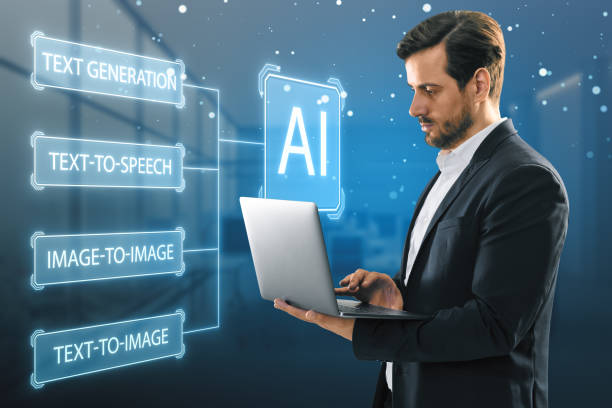
Company Strategies for Managing Changes Caused by Artificial Intelligence
Companies must adopt specific strategies to manage the changes brought about by Artificial Intelligence.
These strategies include the following:
- Investing in Employee Training and Development Companies should invest in training and developing their employees so they can acquire the necessary skills to work alongside AI.
- Organizational Restructuring Companies may need to change their organizational structure to use AI more effectively.
- Fostering a Culture of Innovation Companies should promote a culture of innovation to encourage employees to use AI to solve their business problems.
- Addressing Ethical Issues Companies must pay attention to ethical issues related to AI and ensure that this technology is used responsibly.
By adopting these strategies, companies can benefit from the advantages of the future of AI careers and mitigate the associated risks.
The future of AI careers depends on companies’ ability to manage these changes.
Developing a comprehensive AI strategy involves setting clear objectives, identifying potential opportunities, and assessing associated risks.
Companies must consider that AI is merely a tool and must be used correctly to create added value.
Furthermore, companies must continuously evaluate the performance of their AI systems and improve them as needed.
| Strategy | Description |
|---|---|
| Employee Training | Investing in AI-related training courses |
| Structural Change | Creating specialized AI teams |
| Culture of Innovation | Encouraging the use of AI in problem-solving |
| Ethics | Adhering to ethical principles in AI development and use |
Government Policies to Support the Workforce in the Age of Artificial Intelligence
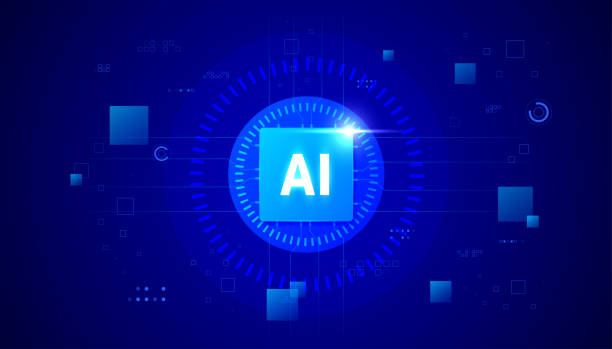
Government Policies to Support the Workforce in the Age of Artificial Intelligence
Governments play a crucial role in supporting the workforce in the age of Artificial Intelligence.
Government policies can help reduce the negative impacts of AI on employment and increase the benefits derived from it.
These policies include the following:
- Investing in Education Governments must invest in education to train a new generation of AI specialists and help current employees acquire new skills.
- Creating New Job Opportunities Governments can create new job opportunities by supporting nascent industries and new technologies.
- Supporting Entrepreneurship Governments can support entrepreneurs working in the field of AI by providing facilities and financial incentives.
- Developing Social Security Programs Governments should develop social security programs to support individuals who lose their jobs due to automation and AI.
- Regulating AI Governments must establish regulations to govern the use of AI to protect individual rights and privacy.
Establishing an appropriate legal and regulatory framework for AI is crucial.
This framework must address issues related to accountability, transparency, and discrimination.
Furthermore, governments, in collaboration with the private sector and academia, should help develop ethical standards for the use of AI.
A comprehensive and coordinated approach to AI policy-making can help ensure that this technology benefits all of society.
Government investment in the future of AI careers can be very impactful.
Disappointed with your e-commerce site’s low conversion rate? RasawWeb transforms your e-commerce site into a powerful tool for attracting and converting customers!
✅ Significant increase in visitor-to-buyer conversion rate
✅ Unparalleled user experience for increased customer satisfaction and loyalty⚡ Get a free consultation from RasawWeb!
Case Studies of Leading Companies Using Artificial Intelligence
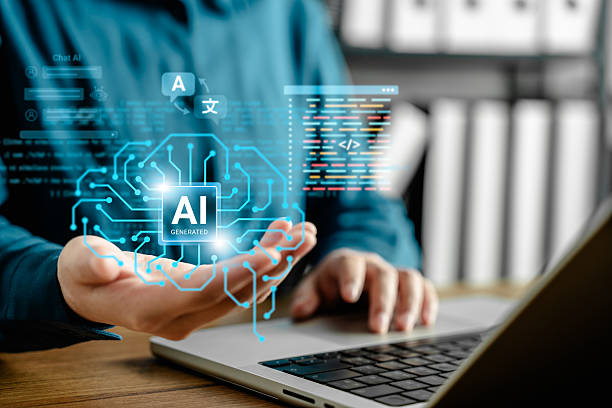
Case Studies of Leading Companies Using Artificial Intelligence
Examining how leading companies use AI can provide valuable lessons for other organizations.
Some of these companies include:
- Google Google uses AI in its various products and services, including Google Search, Google Translate, and the Android operating system.
- Amazon Amazon uses AI in its online store, product recommendation system, and its cloud services (AWS).
- Microsoft Microsoft uses AI in its various products and services, including the Windows operating system, the Office suite, and the Azure cloud platform.
- Tesla Tesla uses AI in its self-driving cars and its manufacturing systems.
These companies have increased their efficiency, offered new products and services, and enhanced their competitive advantage by using AI.
The future of AI careers can be observed in the performance of these companies.
Case studies of companies leading in the use of AI demonstrate that success in this field requires a strategic approach, investment in appropriate infrastructure, and having an expert team.
Furthermore, these companies are continuously experimenting with and evaluating the results of using AI to identify the best methods and benefit from them.
A Look into the Future of AI Careers
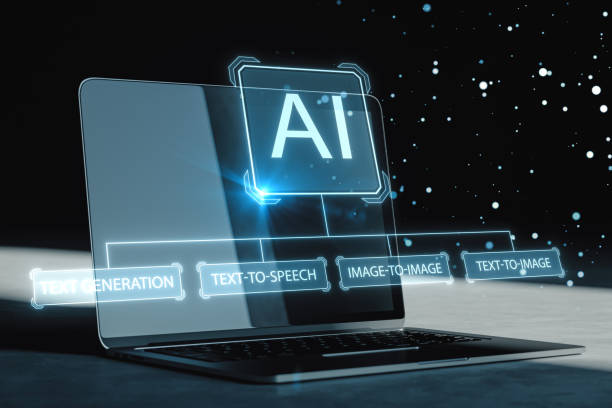
A Look into the Future of AI Careers
Artificial Intelligence is rapidly advancing and is expected to have deeper impacts on the world of work in the coming years.
Some key trends shaping the future of AI careers include:
- Expansion of Automation The automation of business processes and repetitive tasks using AI will become more widespread.
- Increased Use of AI in Decision-Making AI will be increasingly used in decision-making processes.
- Creation of New Job Opportunities AI will create new job opportunities in various fields.
- Need for New Skills Individuals will require new skills to compete in the future job market.
To prepare for these changes, individuals must actively seek to learn and develop their skills, and organizations must adopt specific strategies to manage the changes brought about by AI.
Embracing the future of AI careers and preparing for it is the key to success in tomorrow’s world of work.
The future of AI careers is bright, but it requires effort and readiness.
Ultimately, it is important to remember that Artificial Intelligence is a tool, and its goal should be to improve human lives and create a more just and equitable society.
By using AI responsibly, we can benefit from its advantages and reduce its negative impacts.
The future of AI careers requires an ethical and responsible approach.
Frequently Asked Questions
| Question | Answer |
|---|---|
| What impact will AI have on the future job market? | AI will automate repetitive jobs, but simultaneously create new and more complex roles in areas such as AI system development, maintenance, and training. |
| Which jobs are most at risk of being replaced by AI? | Jobs involving repetitive, rule-based tasks with low requirements for creativity or emotional intelligence, such as some manufacturing, data entry, and simple customer service roles, are most at risk. |
| What skills are essential for success in an AI-driven career future? | Skills such as critical thinking, complex problem-solving, creativity, emotional intelligence, data literacy, the ability to work with AI, and lifelong learning are of paramount importance. |
| Will AI lead to widespread unemployment? | Some jobs will be lost, but history shows that new technologies, rather than causing widespread unemployment, reshape the job market and create new jobs. The need for adaptation and retraining is crucial. |
| What new job opportunities emerge with the advent of AI? | Roles such as Machine Learning Engineer, Data Scientist, AI Ethicist, Human-AI Interaction Designer, and Digital Transformation Consultant are among the new opportunities. |
| What is the role of education in preparing for an AI-driven career future? | Education must focus on developing soft skills, computational thinking, digital literacy, and the ability to learn continuously to prepare individuals for future changes. |
| How can I prepare myself for changes in the job market caused by AI? | You can prepare yourself by learning new skills related to AI and data, strengthening soft skills, developing critical and creative thinking, and embracing lifelong learning. |
| Will AI ethics become an important career field? | Yes, given increasing concerns about biases, privacy, and automated decision-making in AI, the role of AI ethics specialists will become crucial to ensure its responsible development. |
| What is the importance of human-AI collaboration in the future of work? | Human-AI collaboration, rather than competition, will shape the future of the job market. AI can be a tool to increase human productivity and focus on more complex and creative tasks. |
| Which industries will be most affected by AI? | Almost all industries will be affected, but sectors like healthcare, finance, transportation, manufacturing, education, and customer service are pioneers in adopting and transforming through AI. |
And other services by RasawWeb Advertising Agency in the field of advertising
- Smart Marketing Automation: A dedicated service for growth in website traffic based on Google Ads management.
- Smart Advertising Campaign: Professional optimization for digital branding using an SEO-driven content strategy.
- Smart SEO: Designed for businesses seeking to increase sales through Google Ads management.
- Smart UI/UX: A professional solution for digital branding focusing on optimizing key pages.
- Smart Data Analysis: Designed for businesses seeking to improve SEO ranking through marketing automation.
And over hundreds of other services in internet advertising, advertising consultation, and organizational solutions
Internet Advertising | Advertising Strategy | Advertorial
Sources
AI Career Opportunities on Digikala Mag
The Future of AI Jobs on IranTek
Guide to Future Jobs with AI on Karboom
AI Career Challenges on Zoomit
? For your business to leap forward in the digital world and experience unparalleled growth, RasawWeb Afarin is your smart companion. With our expertise in SEO, content marketing, and especially user-friendly website design, you will have a powerful and lasting presence on the web.
📍 Tehran, Mirdamad Street, Next to Central Bank, Southern Kazeroun Alley, Ramin Alley, No. 6

